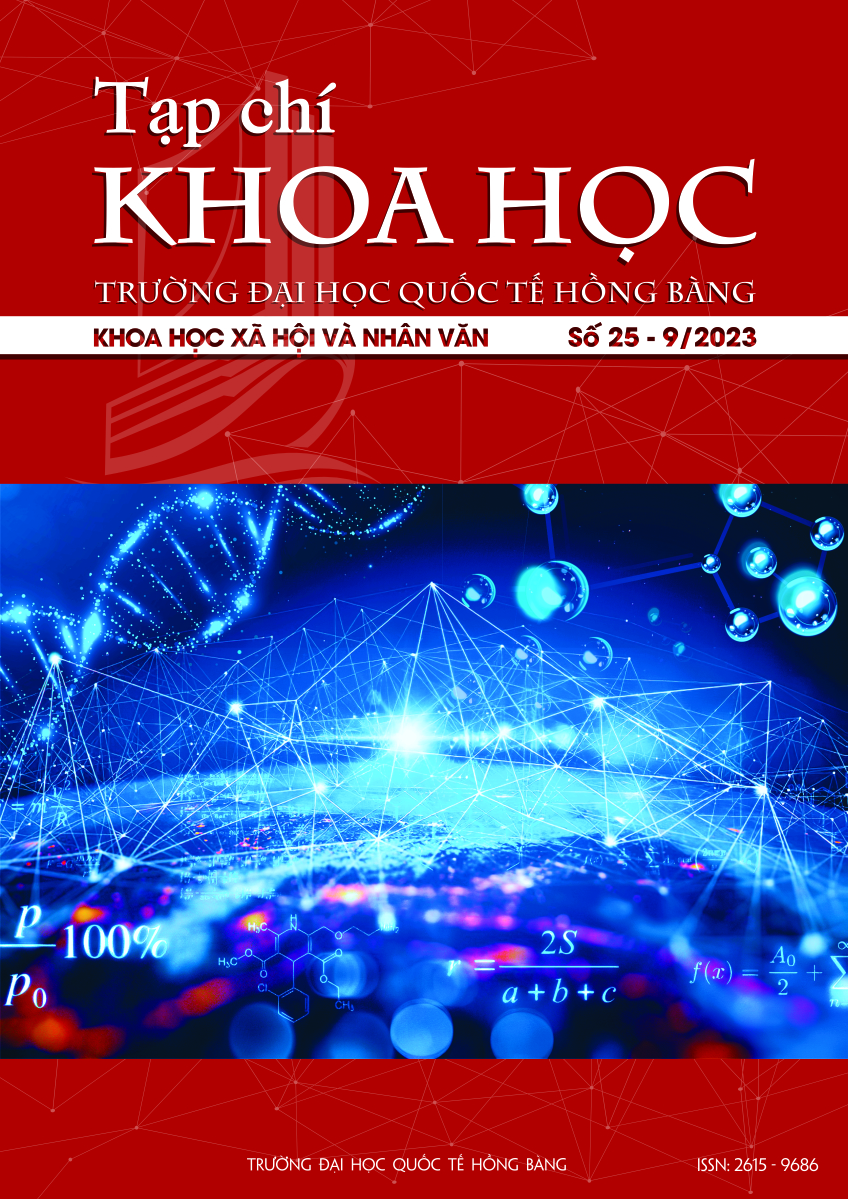Cải tiến cách thức dạy học ở đại học theo tiếp cận hệ sinh thái giáo dục số
Các tác giả
DOI: https://doi.org/10.59294/HIUJS.25.2023.496Từ khóa:
hệ sinh thái giáo dục số, cải tiến, cách thức dạy họcTóm tắt
Sự bùng nổ của công nghệ thông tin và trí tuệ nhân tạo trên toàn cầu đã và đang tạo ra nhiều phương thức giáo dục mới, thông minh hơn, tiện ích hơn. Chuyển đổi số trong giáo dục trở thành xu thế tất yếu đang diễn ra ở tất cả các bậc học, cấp học ở Việt Nam giai đoạn hiện nay. Trong đó, việc số hóa đã từng bước thiết lập một hệ sinh thái giáo dục số với các thành tố mới được chuyển hóa trong tương quan với nền tảng công nghệ số, nơi mà mọi thứ được kết nối giữa công nghệ, dịch vụ và bảo mật hướng đến thu hẹp khoảng cách kỹ thuật số với nhu cầu của các bên liên quan, đặc biệt hướng tới tạo ra nhiều trải nghiệm học tập trong sự hợp tác, tương tác và thúc đẩy cá nhân hóa của người học. Bài viết nghiên cứu về hệ sinh thái giáo dục số để đưa ra quan điểm cải tiến cách thức dạy học ở đại học trong bối cảnh chuyển đổi số ở Việt Nam hiện nay.
Abstract
The explosion of information technology and artificial intelligence globally has created many new, smarter and more convenient educational methods. Digital transformation in education has become an inevitable trend taking place at all levels of education in Vietnam today. In particular, the digitization has gradually established a digital education ecosystem with the structure of new components transformed in relation to the digital technology platform, where everything is connected between technology, service and technology. Service and security aims to bridge the digital gap with stakeholder needs, specifically towards creating a variety of learning experiences in collaboration, interaction, and personalization of learners. The article studies the digital education ecosystem and some experiences in digital teaching at home and abroad to give a perspective on improving teaching methods at universities in the context of digital transformation in Vietnam today.
Tài liệu tham khảo
[1] A.Martin, Digital Literacy and the Digital “Digital literacies: Concepts”, policies and practices, 30, 151, 2008.
[2] M.Fitzgerald, N.Kruschwitz, D.Bonnet & M.Welch, Embracing digital technology: A new strategic imperative, MIT sloan management review, 55(2), 1, 2014.
[3] C.T.Phan, “Industry 4.0 and the development trend of online education”. Journal of Education, 421(2), 43-46, 2018.
[4] T. Kretschmer & P. Khashabi, “Digital transformation and organization design: An integrated approach”, California Management Review, 62(4), 86-104, 2020.
[5] N.T.H.Giang, P.T.T.Hai, N.T.T.Tu & P.X.Tan,“Exploring the readiness for digital transformation in a higher education institution towards industrialrevolution 4.0”, International Journal of Engineering Pedagogy, 11(2), 4-24, 2021.
[6] M.A.Mohamed Hashim, I.Tlemsani & R.Duncan Matthews, “A sustainable University: Digital Transformation and Beyond”, Education and Information Technologies, 1-36, 2022.
[7] L.M.C.Benavides, J.A.Tamayo Arias, M.D.Arango Serna, J.W.Branch Bedoya & D.Burgos, Digital transformation in higher education institutions: A sys-tematic literature review. Sensors, 20 (11), 3291, 2020.
[8] A.A. AlDahdouh, A.J.Osório and S.Caires, Understanding Knowledge Network, Learning and Connectivism, International Journal of Instructional Technology and Distance Learning. 12 (10), 3-2, 2015.
[9] E.Chang and M.West, Digital Ecosystems: A Next Generation of Collaboration. Environment for the Digital Networked Economy, integration and Web-based Application and Services, 4 - 6 December 2006, Yogyakarta Indonesia, 2006.
[10] Paula Dewanti, “Linking National Standards of Distance Education with E-Learning Ecosystem”, Journal of Theoretical & Applied Information Technology, volume 3, 2016.
[11] Christopher Pappas, “The eLearning Ecosystem Metaphor: Key Characteristics and Basic Components”, Elearning industry, 2015.
[12] U.Bronfenbrenner, Environments in developmental perspective: Theoretical and operational models. In S. L. Friedman & T. D. Wachs (Eds.), Measuring environment across the life span: Emerging methods and concepts (p. 3-28), American Psychological Association, 1999.
[13] T.Belawati and J.Baggaley, “Policy and Practice in Asian Distance Education”, Sage Publications, International Development Research Centre, Canada, 2010.
[14] Michael Grahame Moore, William G. Anderson (Eds.), Handbook of Distance Education, Routledge Publisher, 2003.
Tải xuống
Tải xuống: 519











